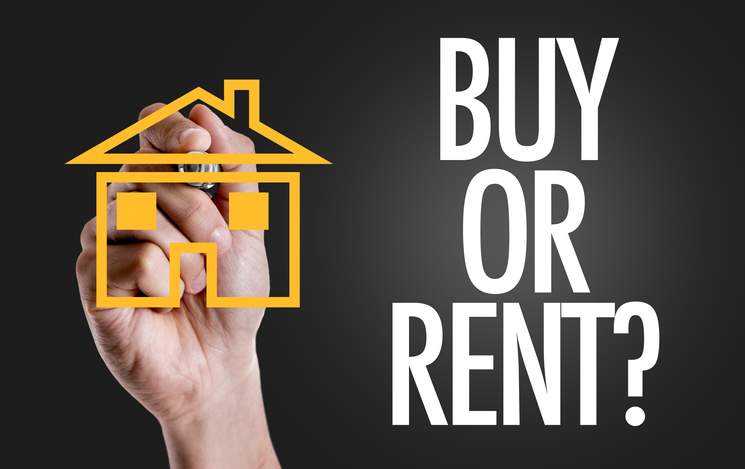To rent or to buy? It’s a question most consumers ponder at one time or another, yet the correct answer varies as much as individual life circumstances do. While your financial state is a major factor, it’s not the only factor you need to consider. Let’s take a look at the big picture: 
Financial Readiness
Are you prepared financially to purchase to home? Your ability to make a monthly mortgage payment is only one aspect of financial readiness. You also need a large down payment and a good credit history if you plan to take out a loan. There are other housing costs to consider as well, such as utilities, insurance, repairs and maintenance, and possibly HOA fees.
Additionally, you shouldn’t drain an emergency savings fund to support the down payment of your home. An emergency fund with three to six months of living expenses can become essential at a moment’s notice, whether you own a home or not.
You must also take your personal debts into account. Your monthly debt payments should not exceed 15 percent of your gross income. If you are financially prepared to purchase a home, there is a great tax advantage. You can deduct mortgage interest, private mortgage insurance and property taxes, potentially saving you thousands of dollars a year.
To learn more about your individual situation, check out our To Rent or To Buy calculator.
Personal Readiness
Before purchasing a home, you need to take your goals, values, needs and wants into account. Homeownership may offer a sense of pride, independence and stability. However, there is greater responsibility than renting. In addition to reaping the benefits, homeowners assume all risks. They are responsible for all repairs and maintenance, and they take the risk their investment may not turn as planned if the real estate market swings.
Carefully examine your needs and wants, and those of your family. Your personal readiness will likely fluctuate with your life circumstances.
Real Estate Market
The real estate market can have a large impact on whether you should rent or own. Look at current prices, as well as the history of purchase prices in the areas you would like to buy. Ask yourself: is it a wise time to buy, based on your current needs, wants and goals? Are you likely to get a better or worse deal if you wait a few months, or even a few years?
Location, Location, Location
The adage is true; it’s all about location. If you are ready to buy, is an affordable home available in your desired neighborhood(s)? If so, you may want to jump on it. If not, you may want to wait it out, even if other factors point to buying now. A home is a long-term commitment. If you can’t see yourself in a specific home or neighborhood for at least three to five years, renting may be in your best interest until the right home becomes available.
Additionally, if you don’t know where your job or family circumstances may take you in the next several years, renting can offer flexibility that homeownership can’t. Those purchasing homes should be confident in the location, property type and available amenities.





